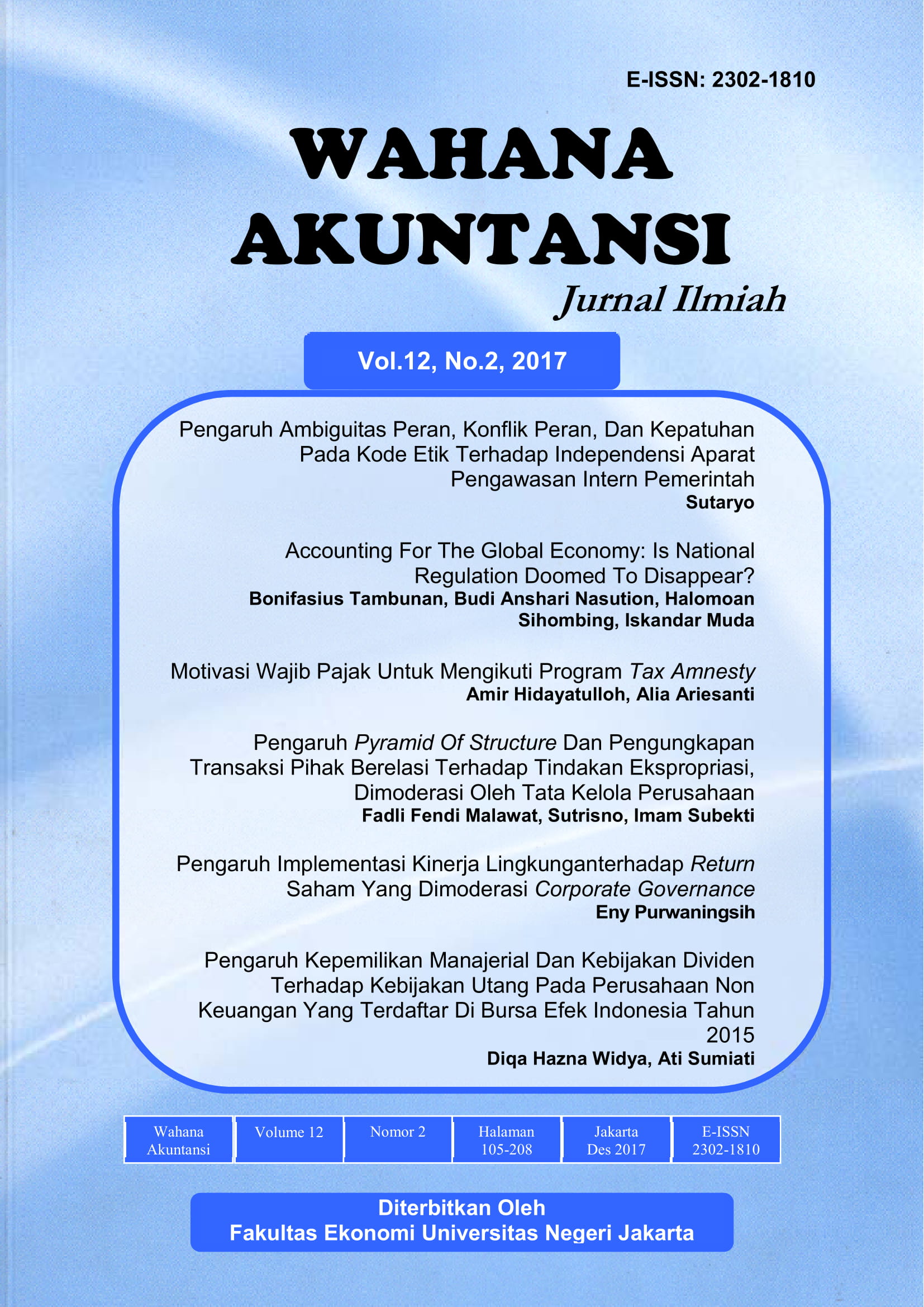Motivasi Wajib Pajak Untuk Mengikuti Program Tax Amnesty
DOI:
https://doi.org/10.21009/wahana.12.023Keywords:
Tax Amnesty, Theory Planned Behavior, Attitude, Subjective Norms, Perceived Behavior ControlAbstract
The study aim is to analyze the motivation of taxpayers to join the tax amnesty program. Theory of planned behavior is used as an analytical tool to explain taxpayer motivation to join this government program. The reason for using TPB is because this theory is appropriately applied to behavior under one's control (volitional control). Volitional control is the behavior of individuals by their desires, and they understand the consequences of the action.
The results of this study indicate that based on aspects of attitude, the respondents have a positive response to the tax amnesty program is. Based on aspects of subjective norms, it can be seen that most respondents follow this program because of the encouragement of the leadership. It means that the leaders have a crucial role in the success of this program. Based on the aspect of perceived behavior control, it can be seen that respondents can perform their obligations when they join the program. They can calculate the assets, count the ransom, pay the tax debt, and report it to the tax authorities.
Downloads
Published
How to Cite
Issue
Section
License

Jurnal Ilmiah Wahana Akuntansi is licensed under a Creative Commons Attribution-NonCommercial-ShareAlike 4.0 International License.
Articles in Jurnal Ilmiah Wahana Akuntansi are Open Access articles published under the Creative Commons CC BY-NC-SA License. This license permits use, distribution and reproduction in any medium for non-commercial purposes only, provided the original work and source is properly cited. Any derivative of the original must be distributed under the same license as the original.











